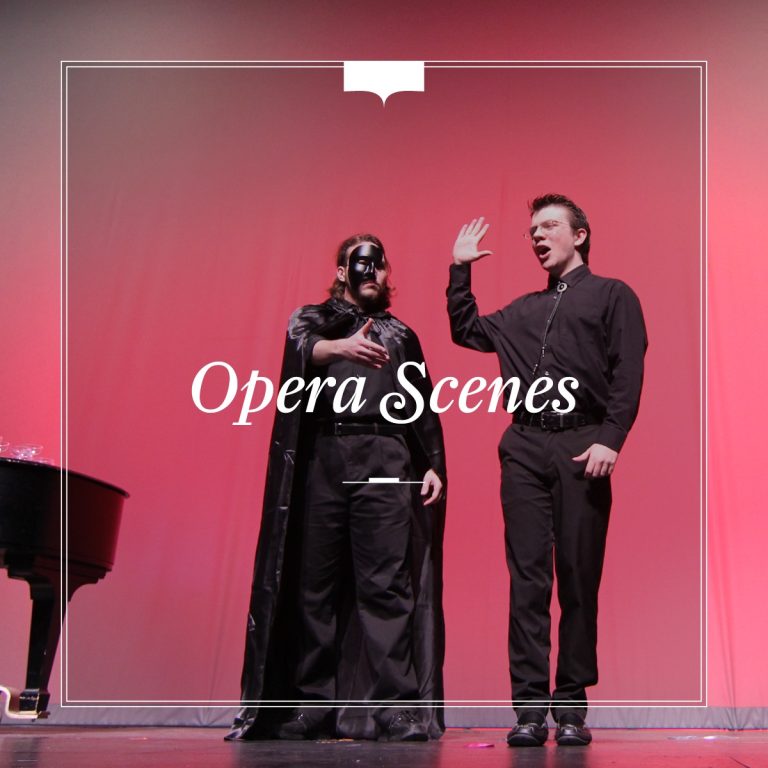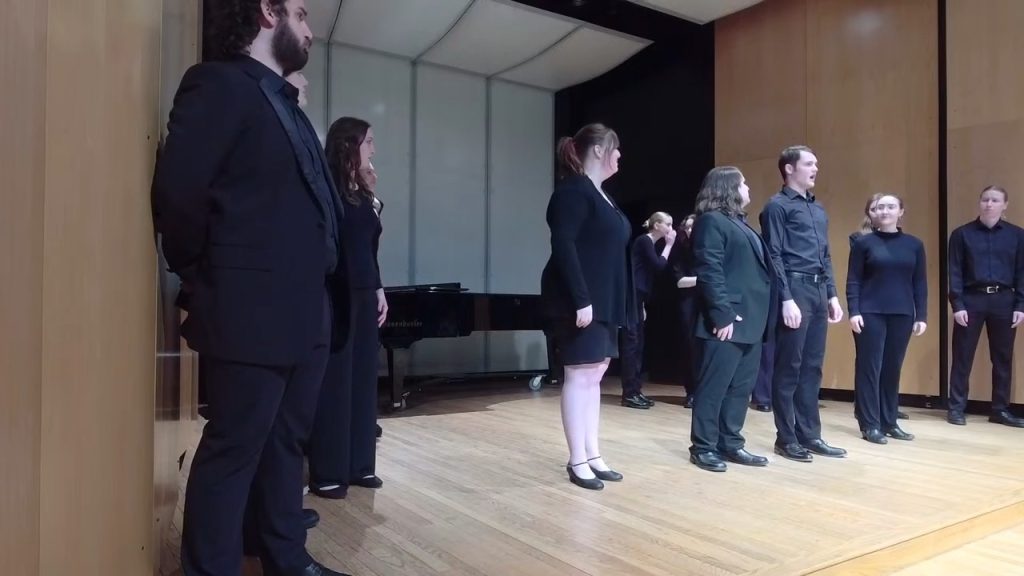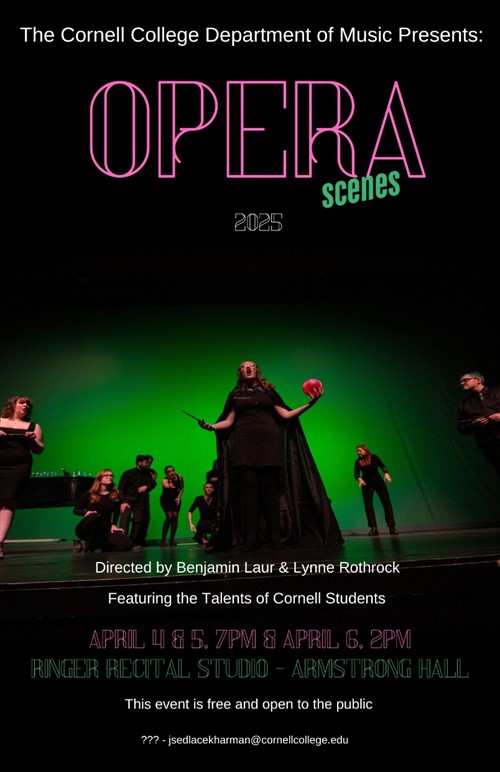
On April 4th, 5th, and 6th Cornell Students are presenting Opera Scenes, a presentation of the talents of our precious peers. The event is quite fresh in the history of Cornell, with this being its fourth annual program. It features short excerpts from various plays, taking their best parts and performing them. It is sort of like a Best of Shakespeare but with single scenes or sequences from an array of different Opera pieces.
History and Impact
While just being in it’s fourth year opera scenes has come a long way from when it started. In a interview with Ben Laur, who has directed the program over it’s four years, he states the program came about organically. “a few students came to me and wanted to do recital and opera and the program just naturally was created from that, over the years its developed and developed into what it is today.” Opera scenes really sprung up out of the student desire to produce opera. Ben states “Just seeing their passion and energy doing something they have fun with but also learn and grow in the process is why I love it so much”.
But really, what's the student experience?

Opera scenes is now an adjunct class at Cornell, and requires meeting twice a week for 2 hours of recital. However, like many classes at Cornell, there is much more time put in outside of recital. I interviewed two students performing this weekend to learn more, lets call them Student1 and Student2. Both stress the commitment the program is for them, but also how much it means to them. Student1 said “there’s a lot of independent learning and memorizing that has to go on, a lot of getting stuff done in a short period of time, but so far it’s been like an awesome experience”.
Opera scenes is a class and space where students are able to commit to their passion. While the set list and roles are picked by the directors, students have control over the ideas and their characters. Student2 said “It’s very student led in that aspect of like, we get to choose what kind of character we want to play, they’re just giving us the music for it.” You can tell this isn’t just some class, the students truly care for the program and cherish what it offers them.
What you can expect from the program this year.
The set list for last years program featured parts from these operas:
- The Gondoliers by Gilbert and Sullivan – Two sons of a Gondolier, Giuseppe and Marco, must travel to Barataria. One of them was adopted and is the secret king of Barataria.
- Gianni Schicchi by G. Puccini – Lauretta asks her father if she can marry Rinuccio. Still, Runiccio needs to be persuaded to enroll in the program, too.
- Don Pasquale by G. Donizetti – In a bid to make easy money, Dr. Malatesta tries to sell the wealthy Don Pasquale on marrying his fictional sister.
- Le Nozze di Figaro by Mozart – The Count has plotted to challenge the marriage of his servants, Susannah and Figaro, so he can make overtures to Susannah unimpeded.
- Hansel and Gretel by E. Humperdinck – Hansel and Gretel, lost in the woods, say their prayers before the Sandman sends them to sleep.
- Les pêcheurs de perles by G. Bizet – Nadir and Zugra, old friends and fishermen of pearls, recall the time their friendship was tested by mutual love for a beautiful priestess of the temple.
- The Merry Widow by F. Lehar – Near the end of the opera – Hanna (the ‘Merry Widow’) and Danilo finally admit their love for one another. Valencienne is tangled in a humorous bout of deception to prove she is ‘a respectable wife’.
- Carmen by G. Bizet – Carmen’s friends Frasquita and Mercedes read their cards and see good fortune. Carmen, preoccupied with her passionate but temperamental relationship with Don José, only sees death for her and her lover.
- Dido & Aeneas by G. Verdi – Azucena, a romani woman, tells the harrowing story of the death of her mother who was burned at the stake for allegedly cursing a child.
- Don Giovanni by Mozart – Masetto has just discovered that Don Giovanni attempted to woo his wife on their wedding day.
A new year, an even better program.
Last year’s play has a collection of some of the most famous and well-known scenes in opera from the Victorian era. Assuming this year is similar, you can expect the play to be very much traditional mainstream opera. Watching last year’s program myself, each scene had beautiful opera singing accompanied by wonderful piano and acting. Hopefully, this year’s program will be even better than the last.
If you’re looking for a short solution to your theatre itch, check out the event this weekend. The event is free to the public and features multiple showings. The program starts at 7 p.m. on Friday and Saturday and 2 p.m. on Sunday at the Ringer Recital Studio. I’m certainly excited to attend for the first time. Hopefully, I’ll see you there!

